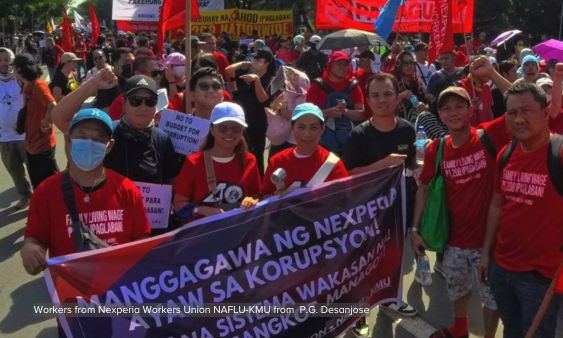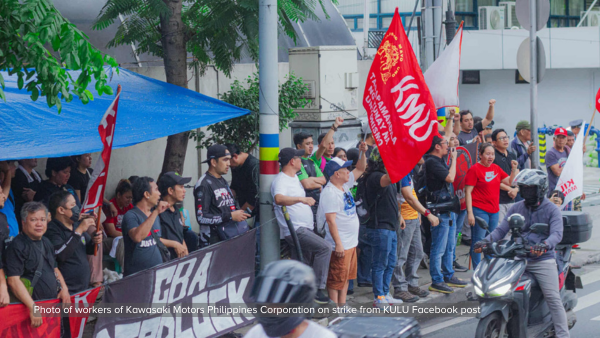Labour centre Kilusang Mayo Uno from the Philippines condemned the approval, in the 10th ministerial conference of the World Trade Organization in Nairobi, Kenya, of a new agreement that is set to eliminate tariffs on new Information and Communication Technology products.
The Philippine labor group said the approval of the Information Technology Agreement II, which expands the coverage of a previous agreement signed in 1996, means the further destruction of the country’s potential to manufacture ICT products, loss of revenues for the government, and deterioration of working conditions for the country’s electronics workers.
The ITA II, which includes the Philippines and was nearly stalled by China’s refusal to lower its tariffs, binds members to “cut 65 percent of their tariff lines down to zero duty upon the July 2016 entry into force, representing about 88 percent of imports of the covered products,” according to the WTO.
“We are not dazzled by the prospect of new electronic gadgets being dumped into the country. It’s the big foreign capitalists who will benefit from this new agreement, to the detriment of the country’s manufacturing capacity, the government’s revenues, and the country’s workers,” said Elmer “Ka Bong” Labog, KMU chairperson.
The labor leader said the country’s experience with the first ITA shows that trade liberalization in electronic products has not meant the bridging of the technological divide within the country, nor between the Philippines and advanced capitalist countries.
“The availability of electronic products has not meant the bridging of the technological divide. The divide was built upon, and further aggravates, the class divide within the country and the development divide between underdeveloped countries like the Philippines and developed countries,” said Labog.
KMU said most factories of the country’s electronics sector are located within export-processing zones, where wages are pressed down even below the legally-mandated minimum, the overwhelming majority of workers are contractuals, and unionized workers are a tiny minority.
“The Philippines’ experience shows that trade liberalization in electronics has only intensified countries’ race to the bottom, to the lowest wages and basest working conditions, in order to attract investors. Many workers making the most advanced electronic products labor under some of the most backward working conditions,” said Labog.
The labor group said the Philippine government should have junked the ITA II, used tariffs strategically in order to build its manufacturing capacity in the ICT sector, and protected workers’ rights in the sector.









